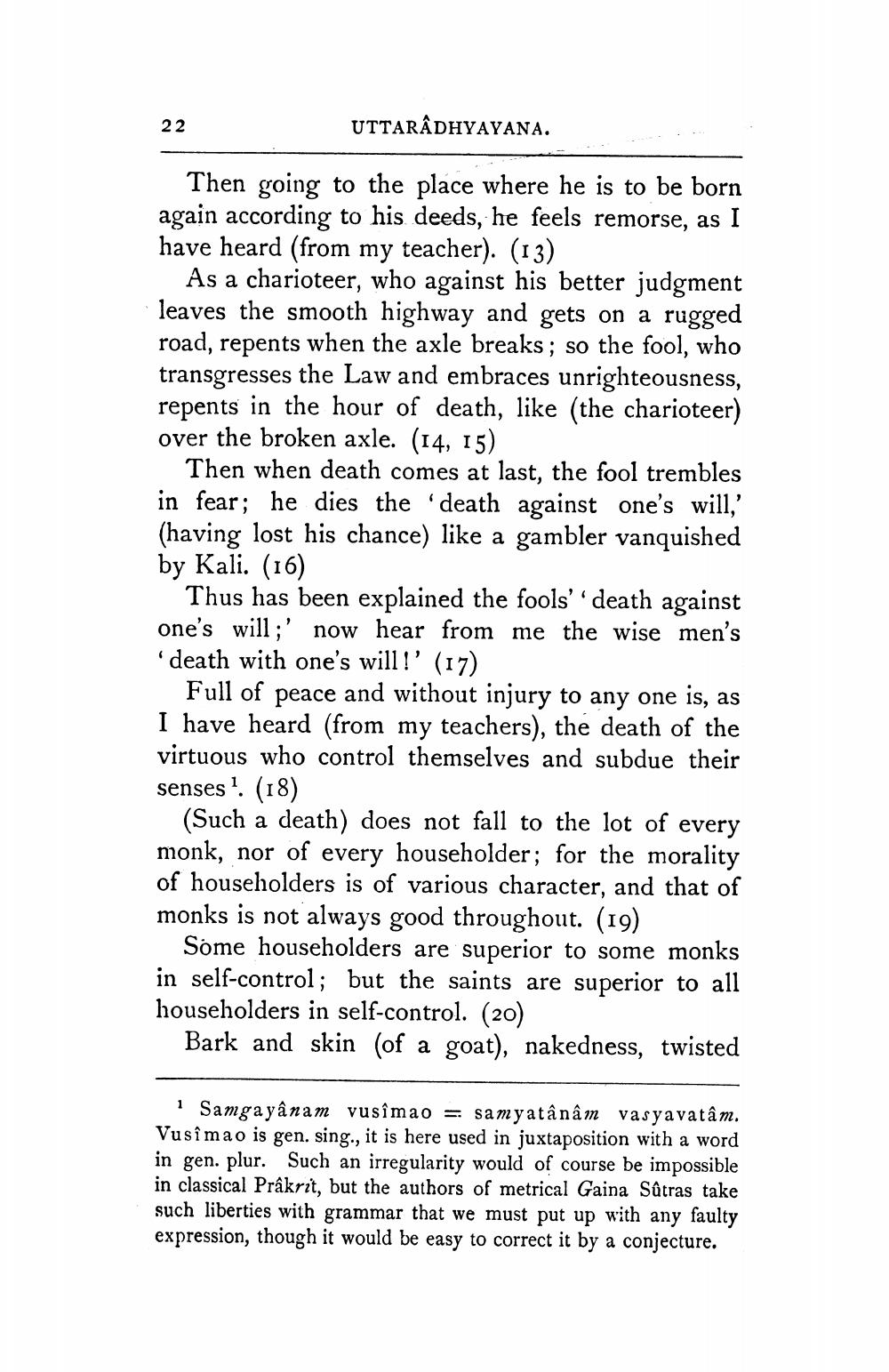________________
22
UTTARÂDHYAYANA.
Then going to the place where he is to be born again according to his deeds, he feels remorse, as I have heard (from my teacher). (13)
As a charioteer, who against his better judgment leaves the smooth highway and gets on a rugged road, repents when the axle breaks; so the fool, who transgresses the Law and embraces unrighteousness, repents in the hour of death, like (the charioteer) over the broken axle. (14, 15)
Then when death comes at last, the fool trembles in fear; he dies the death against one's will,' (having lost his chance) like a gambler vanquished by Kali. (16)
Thus has been explained the fools' death against one's will;' now hear from me the wise men's death with one's will!' (17)
Full of peace and without injury to any one is, as I have heard (from my teachers), the death of the virtuous who control themselves and subdue their senses?. (18)
(Such a death) does not fall to the lot of every monk, nor of every householder; for the morality of householders is of various character, and that of monks is not always good throughout. (19)
Some householders are superior to some monks in self-control; but the saints are superior to all householders in self-control. (20)
Bark and skin (of a goat), nakedness, twisted
1 Samga yânam vusîmao =. samyatânâi vasyavatâm. Vusîmao is gen. sing., it is here used in juxtaposition with a word in gen. plur. Such an irregularity would of course be impossible in classical Prâkrit, but the authors of metrical Gaina Sûtras take such liberties with grammar that we must put up with any faulty expression, though it would be easy to correct it by a conjecture.




